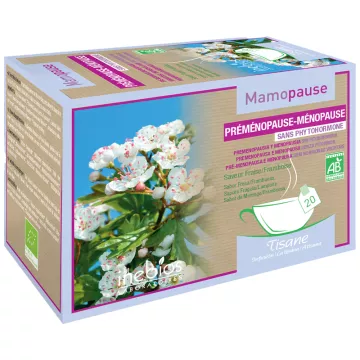





Menopause marks the end of menstrual cycles in women, confirmed after twelve consecutive months without menstruation. Menopausal symptoms vary, but often include hot flushes, sleep disturbances, vaginal dryness and mood changes. This natural process is generally preceded by the perimenopause, during which symptoms gradually begin to appear.
The most frequently reported symptoms include:
These symptoms result from hormonal changes, mainly a drop in estrogen production.
Several strategies can be adopted to reduce hot flashes:
It's not possible to prevent menopause, but it is possible to minimize the impact of symptoms by adopting a healthy lifestyle:
Treatment options vary according to the intensity and type of symptoms:
It is advisable to consult a healthcare professional when symptoms become bothersome or significantly disrupt quality of life. A doctor can assess the symptoms, suggest suitable treatment options and rule out other possible causes of the symptoms.
It's common to experience weight fluctuations during menopause, mainly due to hormonal changes. Lower estrogen levels can affect metabolism and fat distribution, often increasing abdominal fat. Weight management can be facilitated by a balanced diet and regular physical activity to maintain an active metabolism.
The menopause can have a significant impact on mental health. Hormonal changes can lead to increased vulnerability to anxiety and depression. Symptoms such as sleep disorders often exacerbate these challenges. It's important to discuss these mood changes with a healthcare professional, who can recommend appropriate stress management strategies, therapy or medication.
Osteoporosis is a condition characterized by a decrease in bone density, making bones more susceptible to fracture. During the menopause, the rapid drop in estrogen accelerates the loss of bone mass. Preventing osteoporosis involves a diet rich in calcium and vitamin D, regular physical activity to promote bone health, and sometimes prescription medication to boost bone density.
While hormonal therapy is often effective, some women prefer to explore natural treatments. Options such as soy isoflavones, red clover and flax are being studied for their potential to alleviate hot flashes and other symptoms. However, it is essential to consult a healthcare professional before starting any natural treatment to ensure their safety and efficacy.
Menopause can affect sex life due to vaginal dryness and hormonal changes that can reduce libido. Solutions such as water-based lubricants and topical estrogens can help improve comfort. Talking openly with your partner and consulting a healthcare professional can also help manage these changes and maintain a fulfilling sex life during menopause.